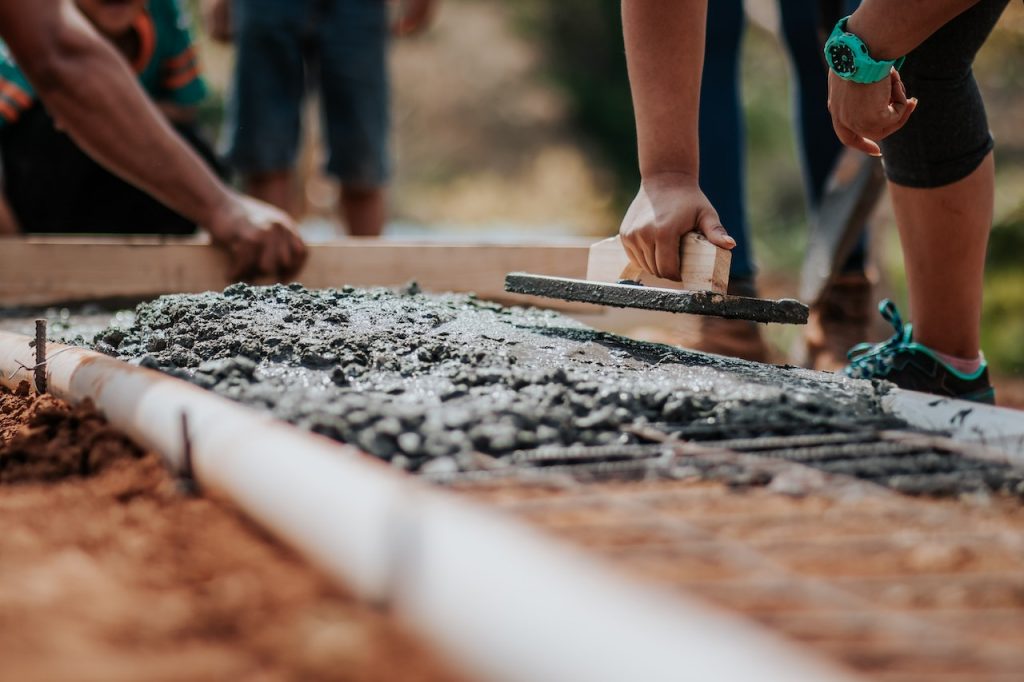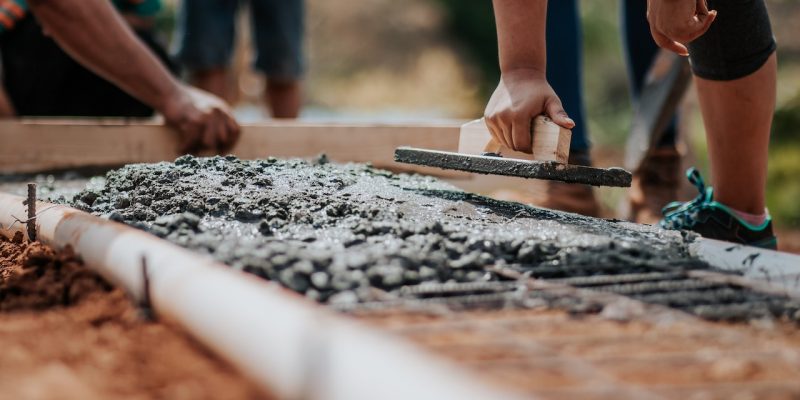Portland cement is the most common cement type that you can use for most construction works. It is the basic material you can include in mortar, stucco, concrete, and non-specialty grout. Portland cement takes the form of a fine powder with gray color, which you can produce by mixing limestone and clay minerals while adding some gypsum during the process.
Portland Cement Type I is the most common type of Portland cement used in various construction works. There are various benefits of using the ordinary type of Portland cement, which include easy handling, usability for various structures in normal and non-contaminated areas, less curing period, better initial strength, and faster initial setting time.
However, there are also some disadvantages of Portland Cement Type I, which include potential skin irritation and other unhealthy problems when you get contact with this cement type. Also, cement dust is unhealthy for most people’s bodies, as it might cause various severe diseases like cancer and others when you inhale it for a long period.

Standard Specification for Portland Cement
There are various types of Portland cement you can use in your construction works. Each type of Portland cement will have its own standard uses and specifications. You might use ordinary Portland cement for most of your construction works, but there are specific cement types you must use in some special conditions.
There are some instances where you can’t use the ordinary Portland cement type in certain buildings because of specific contaminants or other environmental conditions. Using the special Portland cement types can help handle the challenging situations in your construction works, ensuring that you can build a strong structure even in the worst environmental conditions.
Here are some standard specifications for Portland Cement:
Type I: Ordinary
The Type I Portland Cement is an ordinary type of cement suitable for various purposes, so you can use this cement in various projects, as long as the projects don’t require the use of any cement with specific properties. So, this is the cement type that you can often find in various construction works where there are no potential exposures to specific contaminants.
Also Read: How To Find Professional Home Builders Near You?
Type II Cement
Type II Portland Cement is the type of cement used in various projects where there are potential exposures to sulfate attacks, such as in the drainage structures. Most drainage structures have the potential to get contaminated by moderate sulfate attacks, thus the Type II Portland Cement is important to use in this situation.
Type III Cement
The Type III Portland Cement is the special type of cement you can use to gain high early strength during the cement formation. This is the cement type that will get hardened fast upon application, which is an excellent material to use for cold weather conditions. It is almost the same type as the Type I Portland Cement, with the only difference being its high early strength characteristic.
Type IV Cement
The Type IV Portland Cement is the type of cement used for the specific situation where heat is an important factor. With this cement, you can develop the strength of the structure at a much slower rate compared to ordinary Type I Cement. You will need to use this cement type when building a structure that needs to have minimal heat exposure. An example of structures that need to use Type IV Cement is the large gravity dams. Any strong heat exposure can break the structure, which is the reason you need to use this type of cement.
Type V Cement
The Type V Portland Cement is the special cement type you will need to use in places where sulfate contamination is at its highest. Before using this cement type, you will need to examine the soils and groundwaters where the building will get erected. The amount of sulfate content in the soils and groundwaters of the area will determine whether you will need to use the Type V Portland Cement or not. This is the only cement type that can withstand severe sulfate contamination so that the building won’t get damaged by the massive amount of sulfate contaminants.
Also Read: Different Decor Ideas to Make Your New House Stand Out
Conclusion
It’s important for you to use only the type of Portland cement suitable for your construction works. A study of the environmental area will be important for you to do before establishing any structure around the area. It’s not just for safety purposes. It’s also to help determine which Portland cement type is the best to establish your structure there.
Also, keep in mind the various side effects that Portland cement can give on your body. It’s always important to follow the safety precautions whenever you are using any Portland cement type for your construction works or any other projects.




